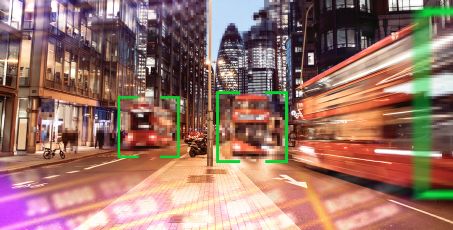Reining in Problem Gambling – The Case for Facial Recognition
20/9/24, 10:00 am
In the intricate landscape of modern society, each technological innovation brings a mixture of benefits and potential drawbacks. The debate over facial recognition technology in public spaces exemplifies this balance, juxtaposing enhanced security and public safety against the imperative of personal privacy. This article explores the proposition of employing facial recognition technology in Australian pubs and clubs to address problem gambling, evaluating its merits and potential challenges.
The Growing Presence of Facial Recognition
Facial recognition technology is increasingly woven into the fabric of daily life. From unlocking smartphones to accessing banking services and interacting with social media, the use of facial recognition is widespread. Despite its everyday application, its use in public spaces, particularly in venues such as pubs and clubs, remains a contentious issue.
Effectiveness in Identification
Advanced facial recognition systems have been shown to be significantly more effective at identifying individuals of interest than traditional security personnel. In large entertainment precincts, this technology has proven to be twenty times more efficient, highlighting its potential in monitoring and safeguarding public spaces.
Addressing Problem Gambling
There have been discussions about implementing facial recognition technology in Australian pubs and clubs to identify and manage problem gamblers. This proposal raises important questions about societal responsibility and the protection of vulnerable individuals.
Scope of the Problem
Problem gambling affects not only the individual but also their families and the broader community. The economic and social costs are substantial, necessitating effective interventions. In 2023, it was reported that Australians lost approximately $25 billion on legal forms of gambling, with almost half of those who gambled classified as being at some risk of gambling harm.1,2
Obligations to Act
If facial recognition technology provides a superior method to protect problem gamblers and their families, there is a compelling argument that society has an obligation to utilise it. The technology's deployment in medium to large venues could significantly mitigate the harms associated with gambling addiction.
Broader Societal Benefits
The advantages of facial recognition technology extend beyond gambling-related applications. The hospitality, entertainment, and public transport sectors, all of which were significantly impacted by the COVID-19 pandemic, could benefit from the technology's broader applications.
Touchless Payments and Efficiency
Facial recognition can facilitate touchless payments and streamline passenger flow in public transport systems, enhancing efficiency and user experience.
Economic Recovery and Job Creation
The adoption of digital identity solutions, including facial recognition, can spur job growth in the technology sector, contributing to economic recovery.
Privacy Concerns and Regulation
Despite the potential benefits, deploying facial recognition technology must be balanced against privacy concerns. Appropriate regulations and safeguards are essential to protect individuals' rights and maintain public trust.
Regulatory Frameworks
Robust legal frameworks must be established to govern the use of facial recognition technology, ensuring it is deployed ethically and transparently.
Public Trust
Robust legal frameworks must be established to govern the use of facial recognition technology, ensuring it is deployed ethically and transparently.
Conclusion
The debate over using facial recognition technology to combat problem gambling encapsulates broader societal dilemmas about adopting new technologies. While the potential benefits in terms of security, efficiency, and economic recovery are substantial, they must be weighed against legitimate privacy concerns. With appropriate regulations in place, deploying facial recognition technology in Australian pubs and clubs could be a significant step forward in protecting vulnerable individuals and fostering a safer, more responsible society. The question remains: are we prepared to embrace this technology responsibly for the greater good?
Sources:
1. Australian Institute of Health and Welfare
2. Australian Institute of Family Studies
Discover NeoFace Watch for Gaming Venues
Interested to learn more? Talk to our of our Digital ID and Biometrics experts. Let's talk

Mark Chadwick
National Manager - Biometrics
mark.chadwick@nec.com.au




